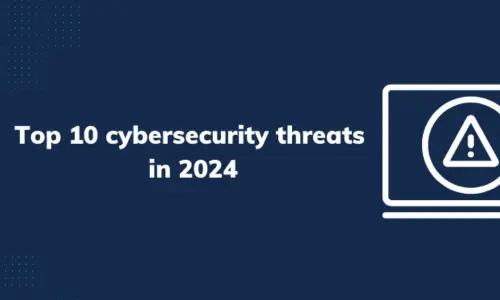Blockchain Beyond Cryptocurrency: The Future Applications of Decentralized Technology
When most people hear the word “blockchain,” their minds immediately jump to Bitcoin or other cryptocurrencies. While blockchain technology was originally developed to support decentralized digital currencies, its potential extends far beyond the financial sector. Blockchain is now being applied to various industries, revolutionizing how we manage data, ensure transparency, and create trust without the need for centralized authorities. From supply chain management to healthcare, voting systems, and digital identity, blockchain’s decentralized nature is proving to be a transformative force in reshaping the digital landscape.
In this article, we explore the future applications of blockchain technology beyond cryptocurrency and its potential to reshape industries and everyday life.
1. Understanding Blockchain Technology
1.1 What is Blockchain?
It is designed to be secure, transparent, and immutable, meaning that once information is recorded on the blockchain, it cannot be altered or deleted without consensus from the entire network. Each transaction or piece of data is grouped into a block, and these blocks are linked together in chronological order, forming a chain—hence the name blockchain.
1.2 Key Features of Blockchain
- Decentralization: Unlike traditional databases that rely on a central authority (such as a bank or government) to validate and store data, blockchain operates on a peer-to-peer network where all participants (or nodes) share and validate information.
- Transparency and Immutability: Every transaction on a blockchain is visible to all participants, providing transparency. Once a transaction is confirmed, it is virtually impossible to alter, ensuring the integrity of the data.
- Security: Blockchain uses cryptographic algorithms to secure data, making it resistant to tampering and fraud.
2. Supply Chain Management: Enhancing Transparency and Efficiency
2.1 Tracking and Verifying Goods
Traditional supply chains are often complex and involve multiple intermediaries, making it difficult to track goods, verify their authenticity, and ensure ethical sourcing. Blockchain provides a solution by creating an immutable, transparent record of every transaction and transfer of goods along the supply chain.
For example, luxury brands can use blockchain to ensure the authenticity of their products, allowing consumers to trace the journey of a product from its origin to the final point of sale. Similarly, the food industry can benefit from blockchain by tracking the origin of food products, ensuring food safety, and quickly identifying sources of contamination in the event of a recall.
2.2 Reducing Fraud and Counterfeiting
Blockchain’s transparent and tamper-proof ledger can significantly reduce fraud and counterfeiting in industries such as pharmaceuticals, fashion, and electronics. By providing a verifiable record of every transaction, blockchain makes it more difficult for counterfeit products to enter the market. Consumers can verify the authenticity of a product by scanning a QR code linked to a blockchain record, ensuring that they are purchasing genuine goods.
3. Blockchain in Healthcare: Secure and Efficient Data Management
3.1 Patient Data Security and Privacy
The healthcare industry faces significant challenges when it comes to managing patient data securely and efficiently. Medical records are often fragmented across different healthcare providers, making it difficult for patients and doctors to access accurate, up-to-date information. Blockchain can help streamline healthcare data management by creating a secure, decentralized system for storing patient records.
They can grant or revoke access to their medical records as needed, ensuring privacy and data security. Healthcare providers can also access real-time, accurate information, improving the quality of care and reducing medical errors.
3.2 Medical Research and Drug Development
Blockchain’s transparent nature also makes it valuable for medical research and drug development. Clinical trial data, for example, can be securely stored on a blockchain, ensuring that it remains tamper-proof and accessible to researchers, regulators, and healthcare providers. This can enhance collaboration between institutions and accelerate the development of new treatments.
In addition, pharmaceutical companies can use blockchain to track the production and distribution of drugs, reducing the risk of counterfeit medications entering the market. By maintaining a secure, transparent supply chain, blockchain can help ensure that patients receive safe, authentic drugs.
4. Blockchain for Digital Identity: Empowering Individuals
4.1 Self-Sovereign Identity
One of the most significant applications of blockchain beyond cryptocurrency is in the realm of digital identity. In the current digital world, personal data is stored on centralized servers owned by companies and governments, making it vulnerable to breaches and misuse. Blockchain offers an alternative: self-sovereign identity (SSI).
SSI allows individuals to create, manage, and control their own digital identity on a decentralized platform. With blockchain, users can store their identity credentials (such as a driver’s license, passport, or educational certificates) securely and share them with third parties only when necessary.
4.2 Reducing Fraud in Online Transactions
Blockchain-based digital identity solutions can also reduce fraud in online transactions. When individuals use traditional identity verification methods, such as passwords or social security numbers, these can be easily compromised in a data breach. Blockchain provides a more secure way to verify identity through cryptographic techniques, ensuring that only the individual has access to their data.
This has broad applications in areas such as e-commerce, banking, and even voting systems, where secure and verifiable identity is critical.
5. Decentralized Finance (DeFi): Redefining Financial Services
5.1 What is DeFi?
Decentralized finance, or DeFi, refers to a system of financial services built on blockchain technology that operates without traditional financial intermediaries like banks. Through smart contracts—self-executing contracts with the terms of the agreement written into code—DeFi platforms allow users to borrow, lend, trade, and invest in a decentralized, transparent manner.
5.2 How DeFi is Reshaping Finance
DeFi has the potential to democratize access to financial services by removing barriers such as geographical restrictions, credit scores, and banking fees. With DeFi, users can participate in financial markets from anywhere in the world, using only an internet connection. This can provide financial services to the billions of unbanked individuals globally, empowering them to participate in the global economy.
Beyond democratizing finance, DeFi also offers opportunities for innovation. For instance, decentralized lending platforms allow users to borrow and lend assets without the need for a bank, and decentralized exchanges (DEXs) enable peer-to-peer trading of cryptocurrencies without a central authority.
6. Blockchain in Voting Systems: Ensuring Fair and Transparent Elections
6.1 Securing the Voting Process
Blockchain technology holds great promise for transforming voting systems by making them more secure, transparent, and trustworthy. Traditional voting methods, whether paper-based or electronic, are vulnerable to tampering, fraud, and manipulation. Blockchain can provide a solution by ensuring the integrity of the voting process.
With blockchain-based voting, every vote is recorded on a decentralized ledger, making it nearly impossible for anyone to alter or delete votes without detection. This ensures that election results are accurate and tamper-proof, increasing voter confidence in the electoral process.
6.2 Increasing Voter Participation
Blockchain can also help increase voter participation by enabling secure remote voting. In many countries, voter turnout is low due to logistical challenges, such as long travel distances to polling stations or lack of access to secure voting systems. With blockchain, voters can cast their ballots securely from anywhere in the world, using their digital identity to verify their eligibility.
This can make voting more accessible to marginalized communities and increase participation in democratic processes, particularly in remote or conflict-ridden regions.
7. Blockchain for Intellectual Property and Digital Rights Management
7.1 Protecting Creative Works
Blockchain has the potential to transform the way intellectual property (IP) is managed and protected. For creators in industries like music, art, and literature, ensuring that their work is not copied or distributed without permission can be challenging in the digital age. Blockchain can provide a transparent, tamper-proof record of ownership for digital assets, ensuring that creators retain control over their intellectual property.
For example, musicians can use blockchain to track the distribution of their songs and receive royalties directly from listeners without intermediaries. Similarly, artists can use blockchain to create digital certificates of authenticity for their works, ensuring that their creations are not copied or sold without permission.
7.2 Smart Contracts for Royalty Payments
Blockchain can also streamline the process of distributing royalties to creators. Smart contracts can be used to automatically execute royalty payments whenever a digital work is purchased, streamed, or shared. This eliminates the need for third-party intermediaries, ensuring that creators receive fair compensation for their work.
Conclusion
Blockchain technology has already begun to prove its value beyond cryptocurrency, with applications in supply chain management, healthcare, digital identity, finance, voting systems, and intellectual property. Its decentralized, transparent, and secure nature is driving innovation across industries, enabling more efficient, trustworthy, and inclusive systems.
As blockchain technology continues to evolve, its potential to reshape the digital landscape becomes more apparent. The future of blockchain lies in its ability to provide solutions to some of the most pressing challenges facing industries today, creating a decentralized future where trust, security, and transparency are paramount.







